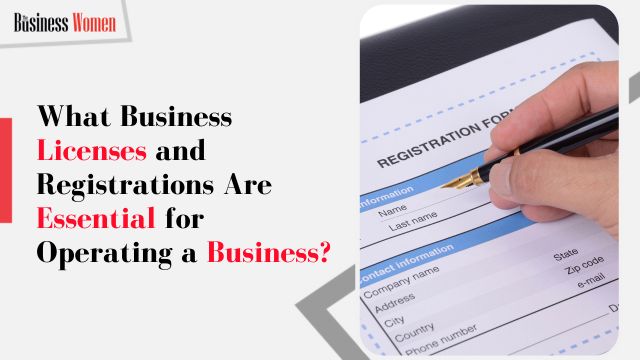What Business Licenses and Registrations Are Essential for Operating a Business?
Before women entrepreneurs can commence their business operations in a fully compliant manner, it’s imperative to secure the essential licenses and registrations from federal, state, and local authorities. The specific documentation and procedural requirements may differ based on your business structure and geographical location.
Here are some of the indispensable licenses and registrations that women entrepreneurs need to attain.
Articles of Incorporation and Operating Agreements
To establish your business as an official entity, corporations must file articles of incorporation. These documents contain essential details such as the business name, purpose, structure, stock information, and more. Similarly, some LLCs may find it necessary to draft an operating agreement which outlines the company’s operational procedures.
Registering a “Doing Business As” (DBA) Name
In cases where you don’t have an operating agreement or articles of incorporation, registering your business name is essential. This could be your legal name, a fictitious DBA name (for sole proprietors), or a name you’ve chosen for your company. Consider trademarking your business name for additional legal protection. Many states require DBA registration, so it’s advisable to check with your local county clerk’s office for specific requirements and associated fees.
Obtaining an Employer Identification Number (EIN)
Following the registration of your business, obtaining an Employer Identification Number (EIN) from the IRS may be necessary. While sole proprietors without employees are not obligated to have an EIN, it can be beneficial for separating personal and business taxes or preparing for future hiring. You can apply for an EIN online at no cost.
Income Tax Filings
The specific federal and state income tax forms your business must file depend on its structure. It’s important to visit your state’s official website to understand state-specific and local tax obligations. Utilising online tax software can assist you in filing and paying taxes on a quarterly and annual basis.
Federal, State, and Local Licenses and Permits
Certain businesses may require federal, state, or local licenses and permits to operate legally. To obtain a business license, contact your local city hall and consult the Small Business Administration (SBA) database to explore state and industry-specific licensing requirements.
Professional Licenses
Certain professions and trades may necessitate professional licenses for businesses and independent contractors. Examples include commercial driver’s licenses (CDLs) required for operating specific types of vehicles, classified into classes A, B, and C.
Seller’s Permit
Determine whether you need a seller’s permit from your city and state to collect sales tax from customers. The name of this permit may vary by state. Register for a seller’s permit through the state government website(s) where you conduct business.
Conclusion
It’s crucial to be aware that licensing requirements and names can vary significantly from one state to another. Moreover, not all businesses are obligated to collect sales tax or obtain a seller’s permit, depending on the nature of their products or services. Seeking guidance from a qualified attorney or business advisor can be invaluable when navigating these legal prerequisites.
Remember, starting with a solid legal foundation is essential for the smooth operation of your business and helps you avoid unnecessary complications down the road.

